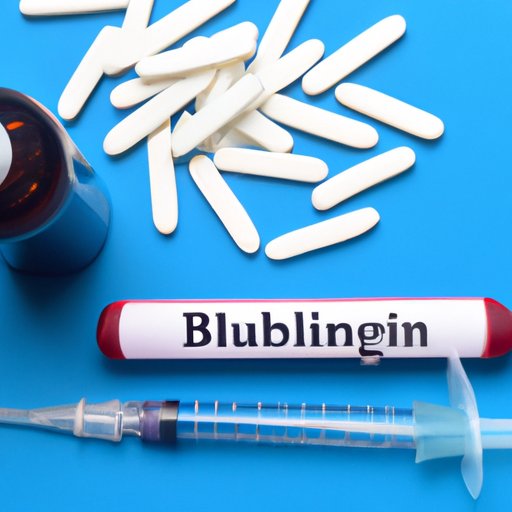
Introduction
Bilirubin is a yellowish pigment that forms in the liver when old red blood cells are broken down. High levels of bilirubin in the blood can lead to jaundice, a condition that causes yellowing of the skin and eyes. In some cases, high levels of bilirubin can also be a sign of underlying liver problems. The purpose of this article is to provide natural remedies, lifestyle changes, medical treatments, prevention strategies, and information about liver health that can help lower bilirubin levels.
Natural remedies to lower high bilirubin levels
Natural remedies have been used for centuries to treat a wide range of ailments, including high bilirubin levels. Some natural ingredients and foods that may help lower bilirubin levels include turmeric, papaya, and buttermilk. Turmeric, a spice commonly used in Indian cuisine, contains curcumin, which has been found to have anti-inflammatory and antioxidant properties that may help protect the liver from damage. Papaya contains an enzyme called papain, which has been shown to aid digestion and promote liver health. Buttermilk, which is made from fermented milk, can help improve gut health and aid in digestion. However, it’s important to note that while natural remedies may have some benefits, they should be used in consultation with a healthcare provider, as they may interact with certain medications.
Lifestyle changes to help manage hyperbilirubinemia
In addition to natural remedies, certain lifestyle changes can also contribute to reducing bilirubin levels. One key habit is maintaining a healthy diet and exercise regimen, as obesity and poor nutrition can contribute to liver problems. Drinking plenty of water and staying hydrated is also important for liver and overall health. Alcohol consumption should be avoided or limited, as alcohol can damage liver cells. Other tips to help improve liver health include quitting smoking and avoiding environmental toxins, such as pesticides and industrial chemicals.
Medical treatments for bilirubinemia
For more severe cases of hyperbilirubinemia, medical intervention may be necessary. Phototherapy, which involves exposing the skin to specific wavelengths of light, is a common treatment for jaundice in newborns. Exchange transfusion, in which the baby’s blood is replaced with donor blood, may be necessary in more severe cases. Ursodeoxycholic acid, which can help dissolve gallstones and improve bile flow, is another possible treatment for high bilirubin levels. However, it’s important to note that these treatments come with potential risks and side effects and should only be administered under the guidance of a healthcare provider.
How to reduce the risk of jaundice
Expectant mothers can take steps during pregnancy to reduce the risk of jaundice in their newborns. These steps include avoiding medications that can cause jaundice, such as sulfa drugs and some antibiotics, and getting regular prenatal care to monitor the baby’s bilirubin levels. For adults, vaccination for hepatitis A and B is an important prevention strategy, as is avoiding risky behaviors that can lead to hepatitis, such as sharing needles. Protecting oneself from environmental toxins, such as avoiding exposure to chemicals like benzene and lead, can also help reduce the risk of developing liver problems.
The link between bilirubin and liver health
Bilirubin and liver health are closely linked. The liver plays a critical role in processing bilirubin and removing it from the body. As such, liver problems, such as cirrhosis and hepatitis, can cause bilirubin levels to rise. It’s important to take steps to prevent liver damage in order to reduce the risk of hyperbilirubinemia. This includes avoiding alcohol and smoking, maintaining a healthy diet and exercise regimen, and reducing exposure to environmental toxins.
Conclusion
Lowering bilirubin levels requires a multifaceted approach that involves natural remedies, lifestyle changes, and medical treatments when necessary. It’s important to work with a healthcare provider to determine the best course of action for your specific situation. Remember that prevention is key when it comes to liver health and that making small changes to your daily routine can have significant benefits.




